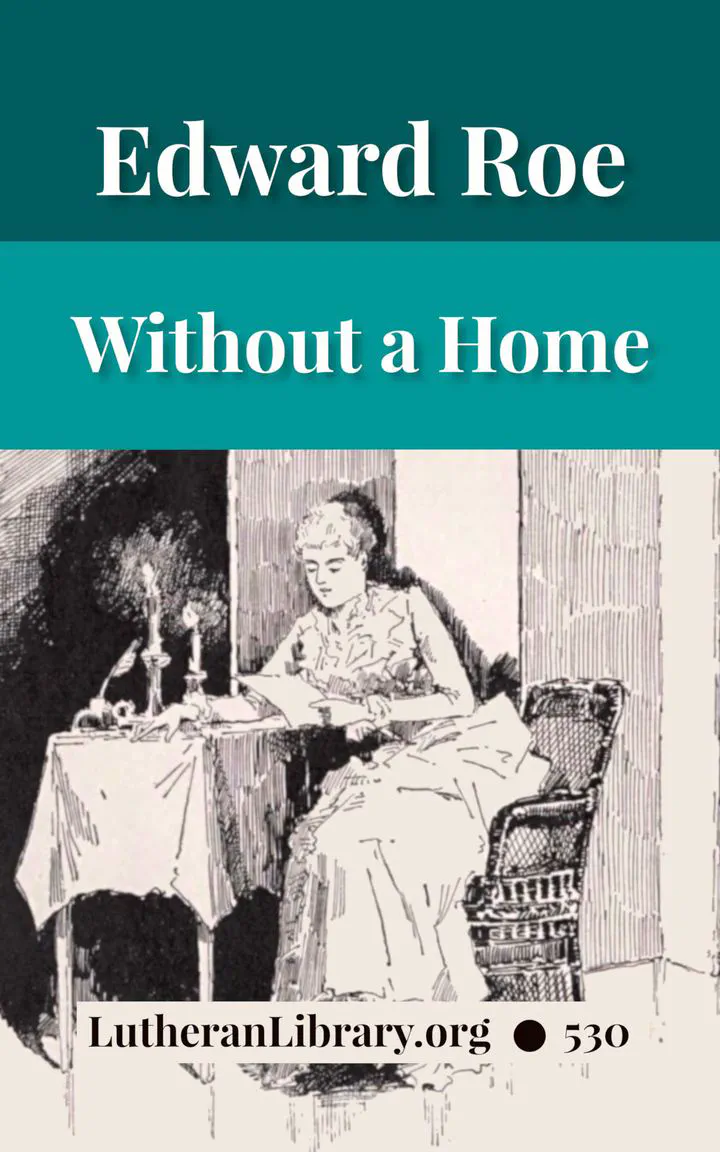Without a Home by Edward Roe

“That man is an opium-eater,” he said in a low tone, and his explanation of the effects of the drug was a diagnosis of Mr. Jocelyn’s symptoms and appearance. The firm’s sympathy for a man seemingly in poor health was transformed into disgust and antipathy, since there is less popular toleration of this weakness than of drinking habits. The very obscurity in which the vice is involved makes it seem all the more unnatural and repulsive, and it must be admitted that the fullest knowledge tends only to increase this horror and repugnance, even though pity is awakened for the wretched victim.
Edward Roe Writes In His Preface
“I am sure I am right in fearing that in the morphia hunger and consumption one of the greatest evils of the future…
“I can truly say that I have bestowed more labor on this book than upon any which have preceded it.”
Edward Payson Roe (1838-1888) was educated at Williams College and Auburn Theological Seminary. He was chaplain of the Second New York Cavalry, U.S.V. and of Hampton Hospital during the Civil War, during which time he submitted weekly dispatches to the New York Evangelist. He served as pastor at Highland Falls, New York after the war, and in 1874 devoted himself to writing and horticulture.[Wikipedia: Edward Roe]
“Roe first turned to a literary career after the Chicago fire of 1871. Deeply moved by the tragedy, he visited Chicago and penned his first novel, Barriers Burned Away, which proved a tremendous success. Rev. Roe died suddenly of a heart attack at the age of fifty after an evening reading aloud to his family."[Monte Wilson]
Book Contents
- Reviews for Without a Home
- Preface
- 1 One Girl’s Ideal Of Life
- 2 Weakness
- 3 Confidential
- 4 “Pitiless Waves”
- 5 The Rudiments Of A Man
- 6 Roger Discovers A New Type
- 7 Comparisons
- 8 Changes
- 9 Neither Boy Nor Man
- 10 A Council
- 11 A Shadow
- 12 Viewless Fetters
- 13 A Scene Beneath The Hemlocks
- 14 The Old Mansion
- 15 “Welcome Home”
- 16 Belle And Mildred
- 17 Belle Launches Herself
- 18 “I Believe In You”
- 19 Belle Jars The “System”
- 20 Several Quiet Forces At Work.
- 21 “He’s A Man”
- 22 Skilled Labor
- 23 The Old Astronomer
- 24 Roger Reappears
- 25 The Dark Shadow Of Coming Events
- 26 Waxing And Waning Manhood
- 27 A Slave
- 28 New York’s Humanity
- 29 The Beatitudes Of Opium
- 30 The Secret Vice Revealed
- 31 An Opium Maniac’s Christmas
- 32 A Black Conspiracy
- 33 Mildred In A Prison Cell
- 34 “A Wise Judge”
- 35 “I Am So Perplexed”
- 36 A Woman’s Heart
- 37 Strong Temptation
- 38 No “Dark Corners”
- 39 “Home, Sweet Home!”
- 40 Neighbors
- 41 Glints Of Sunshine
- 42 Hopes Given And Slain
- 43 Was Belle Murdered?
- 44 The Final Consolations Of Opium
- 45 Mother And Son
- 46 A Fatal Error
- 47 Light At Eventide
- 48 “Good Angel Of God”
- 49 Home
- Appendix
- Copyright Notice
- How Can You Find Peace With God?
- Benediction
Publication Information
- Lutheran Library edition first published: 2019
- Copyright: CC BY 4.0